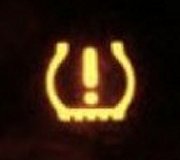There's two things to consider. First of all, the wheel must be replaced. The lug nuts are held tight by the matching friction surfaces. Those surfaces are chewed up on the wheel and the nuts will never stay tight The nuts should be replaced too for the same reason.
Next, do not use any grease on the studs. Most import vehicles come with studs that have an anodized coating that's silver, light blue, or light yellow. That coating is a lubricant for the nuts. Grease actually defeats that. Those times when you DO use grease on the studs, you must walk the nuts on by hand. Never use an impact wrench to spin them on. The grease will build up ahead of the nut, then the centrifugal force will spin the grease onto those friction surfaces where it will prevent that from holding the nut tight.
Of major importance, do not under any circumstances use anti-seize compound on lug nuts and studs, ever. Doing so guarantees the nuts will work loose. That is so important that a mechanic will be fired if he is caught doing that.
The second possibility is the new studs weren't pulled in all the way. We usually want to recheck the nuts after a few miles. Cornering and hitting pot holes will bring the studs in the rest of the way, but of course, then they'll be loose.
Making the nuts "really tight" is not the answer either. There is a torque spec given for every car and every shop has a wall chart showing the correct values. They will be happy to show you that chart, but in the meantime, to get you close, for a smaller car, a good starting point is 95 foot pounds for steel wheels and 80 foot pounds for cast wheels. Over-tightening will deform those friction surfaces I mentioned, and you'll have problems later. That is the number one cause of broken and stripped nuts and studs. It's the mechanic trying to get the wheels off who gets blamed, but it's the mechanic who last worked on the car who caused the problem. Besides deforming the contact points, over-tightening can lead to studs snapping off when you hit a big bump. Under-tightening can lead to the nuts working loose. Along with all those problems, failure to use a click-type torque wrench can lead to warped brake rotors due to the uneven clamping forces.
Also be aware of metal fatigue. Once a nut is over-tightened, that stud could have been stretched to the point where it has been weakened and will stretch easier next time it's under tension. Over-tightening peels the threads too which, when severe enough, causes "galling" which is when they're stripped and you can't get them off, or the nut gets stuck and you snap the stud, but when it's less-severe, the peeled threads can continue to peel off more which causes them to work loose.
You might still see some mechanics run the nuts on loosely with an impact wrench, but they are not professionals if they don't follow that up with a torque wrench.
Thursday, May 21st, 2015 AT 5:43 PM



